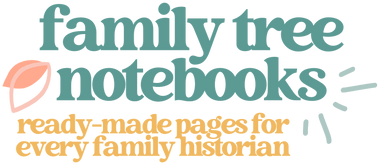
1. Newspapers.com
You need a paid subscription to use Newspapers.com but I consider them my favorite genealogy resource. In addition to marriage announcements and obituaries, you can often find letters to the editor or local interest pieces that mention your family (particularly if they lived in a smaller area). You may also be able to find some papers posted online for free on sites like the California Digital Newspaper Collection.
2. eBay
If you’re looking for yearbooks, small regional books (like community cookbooks), or photographs from an area at a particular time, eBay is a great resource. There are people who make their living just collecting photographs and other things that genealogists might want so they can sell them online to interested parties.
3. University Libraries
When I say “go to the library”, you might imagine yourself heading down to your neighborhood library to see what they have in stock. That might work, but realistically your local library is having a hard time keeping the community interested so that means that they’re often devoting more space to computers, art exhibits, and the latest titles and less space to the older books that could really help you.
University libraries, on the other hand, hang onto books forever and you’re just as likely to find some completely-nerdy-and-totally-helpful thesis on water use in your grandfather’s small town as you are to find a commercial history of the area. Plus, the librarians may be able to get you in touch with other people in the university community who could help you if you’re stuck.
4. The LDS church
Say what? The Family History Library is located here in Salt Lake City and it’s an amazing hub of genealogical information run by The Church of Jesus Christ of Latter-Day Saints. They have people on hand to help you find information and even if you aren’t here in the area you can call in or send an email and they’ll try to help you however they can. Although much of their information is online at the FamilySearch.org website, they do have a large library of books that they can reference and a fair amount of microfilm that hasn’t been digitized yet. They also acquire new resources constantly thanks to an active archival program.
5. Garage Sales
Depending on how recent your area of focus is, garage sales can be surprisingly helpful, especially when it comes to estate sales. In addition to books about the local area, you can sometimes find community ephemera (matchbooks, menus, theater programs) or even professional records like sales receipts that can shed some light on your search.
6. Antique Stores
Antique stores are a good resource, although it definitely helps if you can get to an antique store in your area of interest (since an antique store in Maine isn’t likely to be helpful if your family lived and died in Nevada). I feel like antique stores tend to be a bit overpriced, but usually they have out of print books that you won’t be able to find in other places (or you hadn’t heard of but can now purchase on the Internet) and if you get friendly with antique store owners I’ve found them to be some of the most interesting and helpful sources of information about genealogy. They can often give you information about things that have been handed down in your family and usually they’re part of a network of community history buffs for that area.
7. Deadfred.com
I think the name is grotesque, but I like the thought behind Deadfred.com, which is a site where people share vintage photographs in the hopes of getting them identified. Your chances of finding someone you know on here are still pretty slim since the site isn’t that extensive yet but (A) someone out there is related to those people, (B) new photos get added all the time, and (C) if nothing else it’s a good place to familiarize yourself with the different types of portrait photographs out there and you can connect with other members to chat genealogy.
8. Churches
Many churches keep baptism, marriage, and death records on files for years and years, so if you are looking for dates or the correct spelling of names, churches are a great way to go. I’ve listed them last because I’ve found that it can be a little tough to get information from churches if you aren’t a member, either because people are reluctant to give up the info or because they’re simply understaffed and you aren’t high on their priority list. I’ve found that making an appointment to chat with them (after you’ve explained what you’re looking for) is helpful, especially if you mention that you’ll be donating some family records to the church or making a financial gesture of appreciation for their time.

